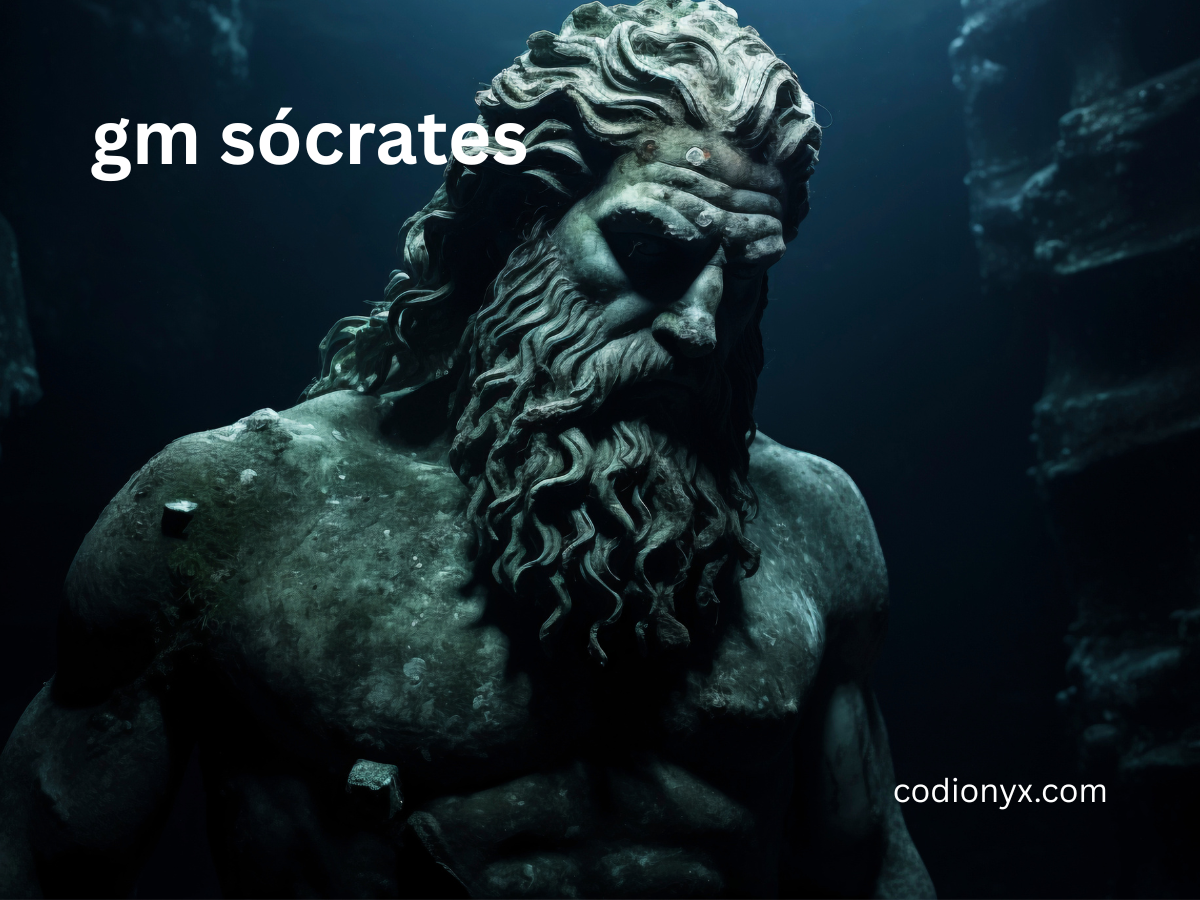Introduction
Few people are as notable in the golden archives of football as Sócrates Brasileiro Sampaio de Souza Vieira de Oliveira, better known as GM Sócrates. Not only because of his name, which is evocative of the ancient Greek philosopher, but also because of his unique combination of intellectual charm, political activism, and football brilliance. Sócrates, a legendary figure in Brazilian football history, was no typical player. He was simultaneously a rebel, a captain, a doctor, and a thinker.
This article explores why GM Sócrates is still one of the most fascinating figures in football and beyond by delving deeply into his life, career, and cultural legacy.
Early Years: The Formation of a Thinker
Gm Sócrates was born in Belém de Pará, Brazil, on February 19, 1954, and was raised in a politically charged environment in Ribeirão Preto. His father, a self-taught man who loved classical literature and philosophy, gave him the name of the Greek philosopher—not by accident. This passion for learning turned into a defining characteristic of Gm Sócrates’ life.
In addition to playing football at a high level, he graduated from the University of São Paulo with a medical degree, which is uncommon for any professional athlete, much less a future football legend.
A Football Career Characterized by Intelligence Clubs and Flair: From Corinthians to Botafogo-SP
Gm Sócrates made his name with Corinthians from 1978 to 1984, but he started his professional career in 1974 with Botafogo-SP. Before going back to Brazil to play for Flamengo and Santos, he later relocated to Fiorentina in Italy.
Sócrates was a formidable figure at 6’4″ (1.92m), but he played with the grace of a playwright and the foresight of a strategist. His cool, lazy style belied an intense footballing intelligence, and his backheel passes became legendary.
Although he scored more than 300 goals in his career, his legacy was more defined by his play, which included controlling the midfield, anticipating plays, and setting the pace.
Brazil’s National Team Despite not taking home the trophy, Hero Socrates led the Brazilian national team in the 1982 World Cup, a competition that captivated the world. Legends like Falcão and Zico were on that team, which is frequently regarded as one of the best teams to have never won the World Cup.
Brazil played with style, originality, and tactical nuance under Sócrates’ direction. His most well-known objective? a lengthy solo run that was both intellectually and physically demanding, followed by a clinical finish against the Soviet Union.
Also Read:https://codionyx.com/why-is-unconditional-love-so-controversial/
The Corinthians Democracy: Politics and Football Collide
Sócrates’ involvement in the Corinthians Democracy, a movement during Brazil’s military dictatorship where players, led by Sócrates, voted on team decisions ranging from tactics to management, was arguably the most remarkable aspect of his life.
A football team serving as an example of democratic values was unprecedented. The movement opposed authoritarian systems in society as a whole, not just in sports. In a nation still struggling under military control, Sócrates even dared to express his political opinions in post-match interviews.
He spoke fervently in favor of Diretas Já (Direct Elections Now), Brazil’s democratic reform movement, in 1984. After the government failed to pass the reform bill, he joined Fiorentina, as promised, and threatened to leave Brazil if democratic elections weren’t held again.
Intellectual Legacy: The Philosopher Captain Socrates was renowned for his love of literature, politics, philosophy, and medicine in addition to his passes. In interviews, he frequently cited Brazilian poets, Plato, and Marx. “I’d rather lose a match than read nothing all day,” he once remarked, demonstrating his legendary love of books.
After retiring, he continued to write, comment, and write columns. His columns covered a wide range of topics, including public health, ethics, and football.
Sócrates remained anti-celebrity despite his fame, favoring intelligence and simplicity over glitz. He contested the notion that athletes are socially isolated or apolitical.
Later Life and a Fatal Death
Later in life, Sócrates battled alcoholism, a condition he freely talked about. His lifestyle finally caught up with him, resulting in numerous hospitalizations and liver issues.
He passed away in São Paulo on December 4, 2011, at the age of 57. He tragically died on a Sunday morning, right before Corinthians played in the game that decided the 2011 Brazilian Championship. It seemed symbolic, as though the team’s triumph was a nod to its most pensive captain.
What Makes General Gm Sócrates Still Important Today?
He demonstrated that athletes are capable of thought.
Athletes are often advised to “stick to sports,” but Sócrates defied that expectation with conviction.
He linked democracy and sports.
He lived up to his ideals and demonstrated through Corinthians Democracy how football could be utilized to advance actual political change.
He lived up to his principles by declining bribes, renouncing contracts, and opposing dishonest systems.
Generations of players were inspired by him.
Sócrates is cited by contemporary football players, such as Marcus Rashford and Juan Mata, as an example of a socially conscious athlete.
Conclusion
Gm Socrates lived his life with purpose rather than merely playing football. His tale serves as evidence that sports can serve as more than just amusement; they can also serve as art, protest, philosophy, and medicine.
The legacy of GM Sócrates stands out as a reminder that greatness is about truth, not just trophies, in a time when commercialism frequently eclipses character.
In the realm of sports, he continues to be a unique representation of a whole person: a football player with a mission, a doctor with a vision, and a thinker in cleats.
FAQs
Q1: In GM Sócrates, what does “GM” mean?
Fans or internet sources occasionally use “GM” as a shorthand for “Great Man” or “Grand Master” in this context; it is not an official title, but rather an informal one honoring his legendary status.
Q2: Was Gm Sócrates a true medical graduate?
Indeed. While playing football professionally, he graduated from the University of São Paulo with a medical degree. After leaving the sport, he went on to become a doctor.
Q3: What was the Democracy of Corinthians?
Gm Sócrates and his teammates spearheaded a social and political movement in which players democratically decided as a team. It opposed the military dictatorship that ruled Brazil in the 1980s.
Q4: Did Sócrates and Brazil win the World Cup?
No. In the 1982 World Cup, he captained Brazil, a team that was famously defeated 3-2 by Italy despite being adored for its style.
Q5: What caused Sócrates’ demise?
Due to complications from food poisoning that resulted in septic shock, he passed away on December 4, 2011. His deteriorating health was also influenced by his ongoing battle with alcoholism.










